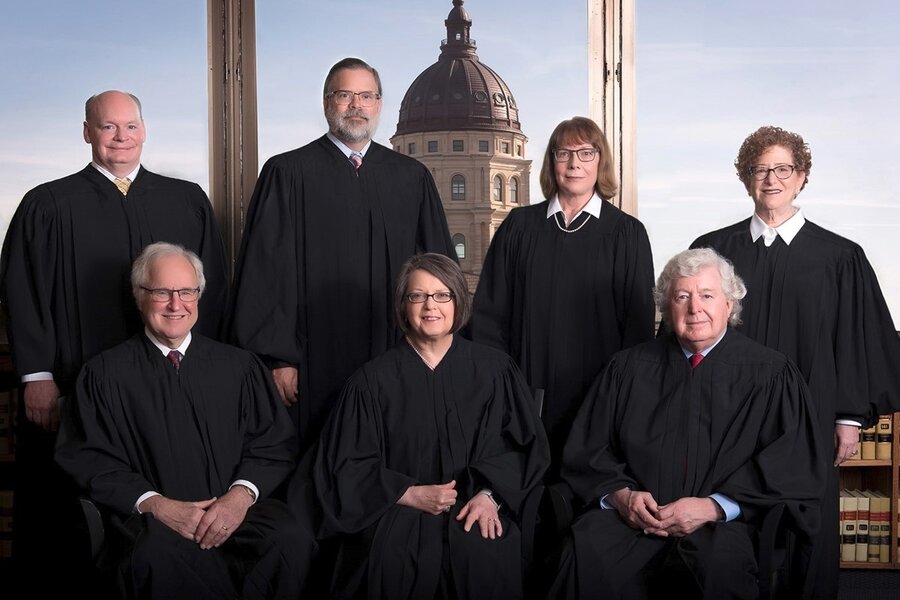The Kansas Supreme Court ruled on July 5 to overturn two abortion regulations, reaffirming that the state’s constitution protects the right to the procedure.
In two separate cases, the court determined that a 2011 law imposing strict licensing requirements on abortion facilities and a 2015 ban on dilation and evacuation abortions violated a woman’s constitutional right to personal autonomy.
The majority opinions referenced the court’s contentious 2019 decision, which stated that the “equal and inalienable natural rights” outlined in Section 1 of the Kansas Bill of Rights encompass the right to personal autonomy, and by extension, the right to abortion.
The justices’ decision follows the U.S. Supreme Court’s June 2022 Dobbs ruling, which overturned the national right to abortion established by the 1973 Roe v. Wade decision.
Kansas Solicitor General Anthony Powell argued in March that the state Supreme Court should “revisit” the issue in light of Dobbs and return the issue to the people.
But Kansas Supreme Court Justice Dan Biles pushed back, saying, “We’ve done that in Kansas.”
Two months after the Dobbs decision, Kansas voters rejected a constitutional amendment that aimed to clarify that their constitution does not guarantee the right to abortion and that the state legislature has the authority to regulate the procedure.
“We had a vote in August, and pretty overwhelming, to reject the prospect of amending the constitution. I think that is the elephant in the room,” Justice Biles, who joined the majority in both decisions, said.
Justice Caleb Stegall, the lone dissenter, criticized the majority for what he described as “arbitrary policy-making” aimed at enshrining only the court-preferred rights in Section 1’s guarantees.
Justice Stegall pointed out that “dozens” of other laws regulate personal bodily choices and predicted that “a massive swath of government action” would now face “the most rigorous and exacting standard of constitutionality—strict scrutiny.”
He wasn’t the only justice with doubts, however.
Justice Evelyn Wilson joined both majorities but clarified in a concurring opinion that her decisions were made out of respect for the 2019 precedent and because the voters had already expressed their views.
As for whether the Kansas Constitution establishes rights to personal autonomy or abortion, Justice Wilson said the answers to those questions were still unclear.
One of the two cases that the court decided was a continuation of the 2019 case, in which the court also established that state laws regulating abortion are subject to strict scrutiny.
At that time, the justices sent the case back to the district court to determine whether the 2015 ban on dilation and evacuation abortions, a procedure involving the dismemberment of the unborn child, was unlawful under the strict scrutiny standard. The district court later ruled the ban was unlawful, stating that there was “no reasonable alternative” to that method.
The second case involved a legal challenge to updated licensing rules for abortion clinics. These rules included annual surprise inspections, a requirement for abortions to be conducted only by physicians with hospital admitting privileges, in-person administration of abortion pills under the prescribing physician’s supervision, and a mandate for abortions after 22 weeks to be performed in a hospital or surgical center.
Kansas law currently permits abortions until 22 weeks of pregnancy, after which the procedure is prohibited except in medical emergencies. For the procedure to be performed on a minor, an abortion provider must obtain the written consent of both the child and a parent or guardian.
Other restrictions that the state’s Republican-led Legislature has passed—including a mandatory 24-hour waiting period—remain tied up in legal challenges.
Share your thoughts by scrolling down to leave a comment.













